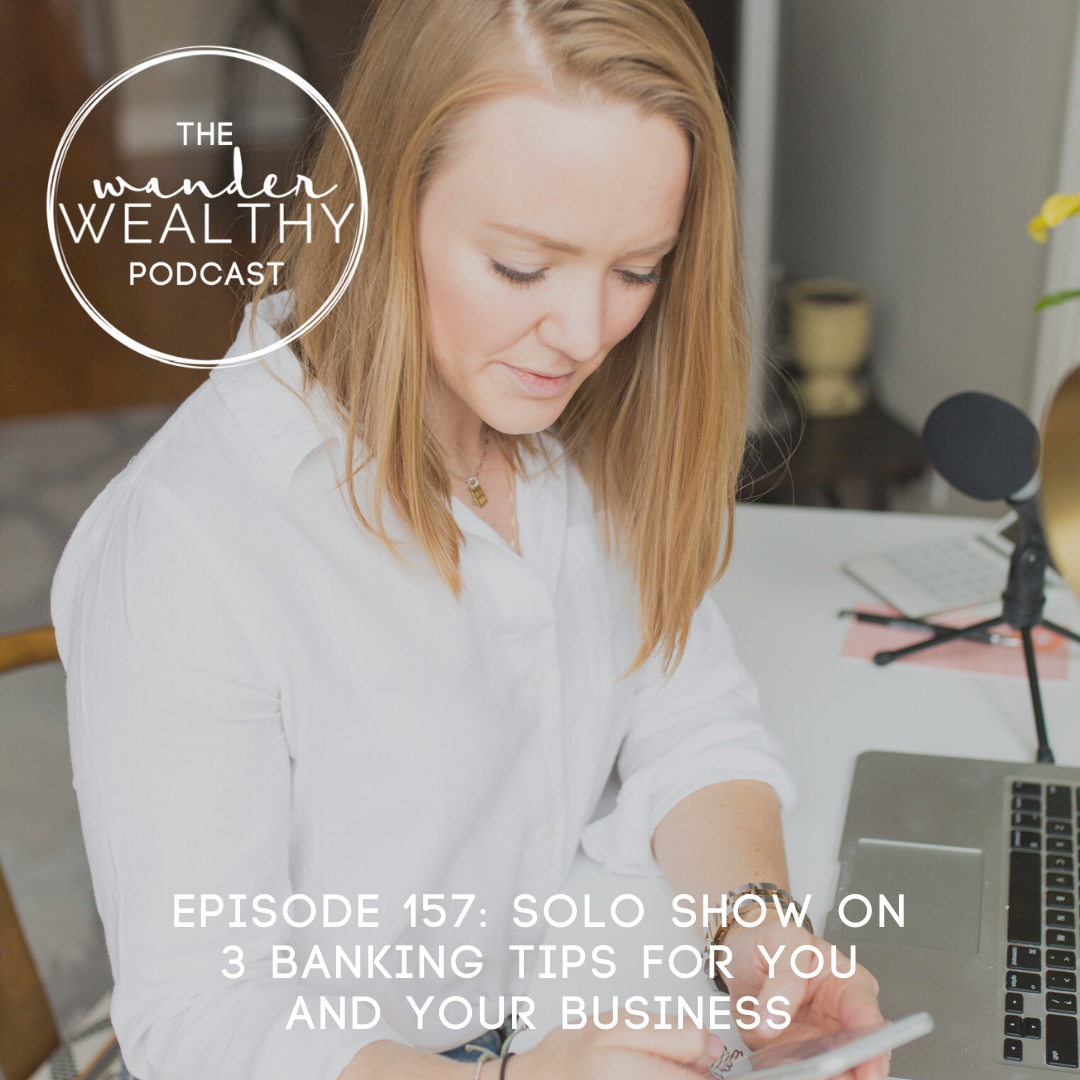WW 157: 3 Banking Tips for You and Your Business - Solo Show
Having a great banking system in place is crucial to helping you better manage your money. Money plays a role in so many aspects of our lives, so if you don’t have your money figured out, it’s going to have an effect on other areas of your life. In this episode, I'm sharing a few of the banking tips that I’ve personally implemented, that I believe are especially helpful when you’re dealing with both business finances and personal finances. Loving this episode? Take a screenshot and share it on Instagram! Tag me so I can send you some love (@Tess_Wicks)
Listen to the show:
Resources FROM THIS EPISODE
Recommended Listen: Episode 128: Do You Need a Business Bank Account? Plus, What To Consider
Recommended Listen: Episode 123: Why Your Business Needs an Emergency Fund
Online Banking: Ally Bank
Online Banking Tool: NerdWallet
OTHER GREAT Resources
Ready to create profit, effortlessly, in your business? Download The 5-Step Easy Profit Roadmap.
Get on the Guest List for the Payday Party Workshop!
Want to work with me in my most exclusive coaching package, yet? Email me!
A Quick Recap from this episode
Having a great banking system in place is crucial to helping you better manage your money. Money plays a role in so many aspects of our lives, so if you don’t have your money figured out, it’s going to have an effect on other areas of your life. Implementing a system that actually works and helps you feel at ease around money helps you explore your development in all the other areas.
I’m sharing a few of the banking tips that I’ve personally implemented, that I believe are especially helpful when you’re dealing with both business finances and personal finances. (It’s so much easier to follow along with these tips with the Easy Profit Roadmap, so download it now!)
Tip #1: Separate your business banking from your personal banking.
You do not need to be incorporated, file an LLC, etc. before you open a bank account for your business. You can run your business as a Sole Proprietorship, so there’s no reason to get too focused on the legal structure of your business before opening a bank account.
The easiest way to do this is to open a new bank account at a different bank, and set your income deposits to go to that account. I recommend an online bank that will allow you to bank freely, so you’re not getting charged for crazy fees each month. Online banks have no overhead costs so they’re less likely to charge you simply for having the account. I recommend Ally as a great online bank to start with, and I also love using NerdWallet.
You will thank yourself when it’s time to do taxes for the organization and ease that comes with having a separate account for business purposes.
Tips #2: Create separate checking accounts for fixed spending and discretionary spending.
This is a personal income tip, but something I’ve recently implemented for myself after helping clients with it in the past. Within your personal banking account, set up two separate checking accounts. One is for fixed spending (i.e. anything that’s automated - rent, utilities, insurance, internet, phone, subscriptions, memberships, etc.) and the other is for discretionary spending (i.e. anything that you are deciding to spend money on “in the moment”).
This helps you determine where your priorities are, and helps you to know for sure that those fixed expenses are covered. It also helps you budget well, because usually we get thrown off in budgeting when it comes to discretionary expenses. Check in on these accounts every two weeks.
Tip #3: Set up savings accounts for specific things.
This applies to business and personal banking. So many people set up one savings account and don’t know specifically what they’re saving for. Savings accounts are great for short-term savings (1-3 years).
For business purposes, this means setting up a savings account for taxes, so that you know you won’t owe the IRS money you don’t have when tax time rolls around. Also set up a savings account as a profit account, which you’ll use to pay yourself or for future investments. This is really great to use as an emergency fund or when you fall on harder times.
For personal banking, make sure you have an emergency fund set up as a savings account. This is important whether you’re a business owner or not to help you cover those problems that come up. If you’re self-employed, the recommendation for what you should aim to save up in this emergency fund is 6-9 months worth of expenses.
If you have a hard time wrapping your mind around all these accounts and how money should flow, I challenge you to grab a piece of paper and map out how money should flow through these accounts, and then use that map and apply it to the digital world. Making sure you have a good banking system in place is so helpful and eye-opening to managing your money!
*These links are affiliate links. I’ll get a small commission if you sign up/buy, but this comes at no additional cost to you!












